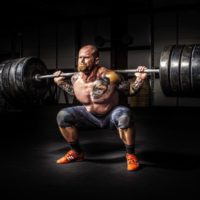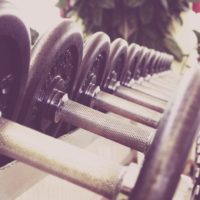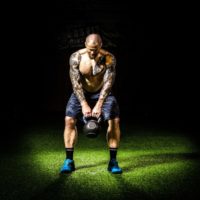The Ideal Muscular Body, Part 3: Power and Ability
What separates truly powerful bodybuilders from average ones?
In the first two parts of our current series, we have explored the minutest details of the ideal physical form of a competing bodybuilder. We have learned that apart from the general size of a bodybuilder, judges are often looking for detailed musculature and clear distinctions among the different muscle groups.
The big question now is how can you achieve the ideal musculature of a professional bodybuilder? What traits must you possess or develop in order to pound your body into an “X-frame” worthy of Mr. Olympia?
The Traits
1. Develop Your Energy, Stamina and Endurance – One of the biggest obstacles to developing a freakishly good physique is lack of energy to sustain heavy weightlifting day in and day out for at least a few years. Yes, it takes many years of consistent work to produce sterling results.
It would be wrong to assume that bodybuilding would be easy because of human growth hormones or anabolic steroids. Professional bodybuilders will simply laugh at the thought that these are the only things you will need to craft the perfect physique.
In order to understand the endurance level you will need for formal training, take a peek at a sample training system used by a pro bodybuilder:
- Training is 4/6 days a week, alternating schedule
- 1 hour heavy-very heavy training or 2 hours light-moderate training
- 4-6 sessions of high intensity cardiorespiratory workouts lasting 20-30 minutes per session
2. Muscular Power and Vigor – There is zero possibility of surviving a formal training session if you don’t push your body to bring out its natural muscular power and vigor. You will be lifting, pulling, pushing and explosively swinging (in some cases) increasingly heavy weights.
If you think you are physically weak, then bodybuilding is definitely not the ideal activity for you. After the initial conditioning phase, you will be slowly exposed to more brutal sets and reps. This difficult path has been treaded countless times by passionate bodybuilders from all over the world.
Do genes affect a person’s strength, too?
Some bodybuilders have been blessed with natural power and strength – these guys often amaze older bodybuilders because they are able to curl, press or squat weights that took regular bodybuilders years to master.
If you can easily match the strength of gym veterans in your area and you actually feel good after squatting hundreds of pounds of metal, there is a huge possibility that you will be able to make massive muscular gains later on in your journey. Just keep assaulting those barbells and dumbbells!
3. Insanely High Metabolism – Unless you have a medical condition that directly affects the regulation of your metabolism, developing an insanely high metabolism shouldn’t be a problem.
You need a progressive and well-developed metabolism so you can consume more calories for intense workouts without building visible fat deposits. An efficient metabolism usually develops after a few months of working out. A seasoned bodybuilder can consume more than 4,000 calories per day and maintain well-defined musculature. Inversely, people with low metabolisms can build visible fat stores even if they’re on a 2,500 calorie diet.
If you’re a complete beginner, you can improve your metabolism by increasing your meal count and by improving your selection of foods. Lean cuts of meat, fresh fruits, vegetables and complex carbohydrates will support your transition from low metabolism to high metabolism.
Always combine excellent nutrition with an increase in physical activity! Your body needs constant and meaningful exercises to improve its ability to burn off excess calories.
4. High Pain Tolerance – To say that weightlifting is painful is an understatement. Professional bodybuilders who are training hard in the weeks that lead to a major competition experience pain beyond your wildest dreams. If you think that accidentally knocking your head on a wall is painful, professional training will surprise you at the very least!
There is also no shortcut when it comes to dealing with pain. Bodybuilders tend to develop their own ways of adapting and bearing the pain that comes with training with heavy weights.
Every training system worth its name is painful, because that’s how you will develop: through pain and overcoming your present physical limitations.
Training-related pain isn’t limited to bodybuilding. Have you ever tried watching professional ballet dancers? I can assure you that those poses and movements can make grown men cry. Be prepared for pain. Embrace it like it’s your bodybuilding birthright!



